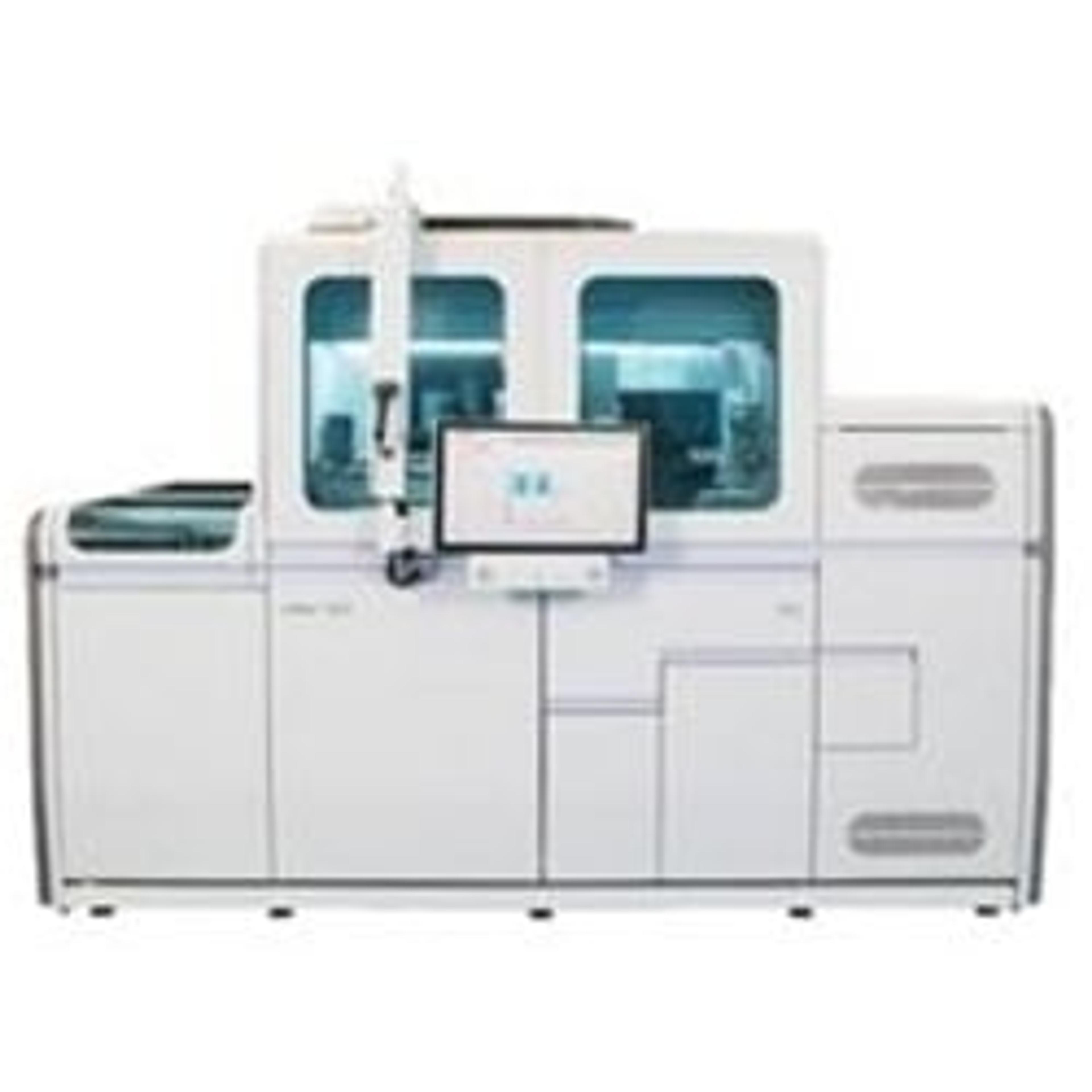Roche launches cobas Epstein-Barr virus and BK virus tests for immunocompromised patients
Cobas 6800/8800 system can be used to test for EBV and BKV in transplant patients
24 Sept 2019
Roche announced the commercial availability of two tests, for use on the automated cobas® 6800/8800 Systems in countries accepting the CE mark. The cobas® EBV (Epstein-Barr virus) and cobas® BKV (BK virus) Tests provide reliable, standardized, high-quality results for clinical decision-making to help manage the risk of infection and improve the management of severely immunocompromised transplant patients. Healthcare professionals use these tests to assess if transplant patients are at risk of developing disease by these pathogens, which can contribute to organ rejection.
- Immunocompromised transplant recipients are at risk of major complications when infected with Epstein-Barr or BK viruses
- With the new cobas EBV and cobas BKV Tests on the cobas 6800/8800 Systems, healthcare professionals can now determine which transplant patients are at risk of further complications caused by reactivation of these viruses
- Both tests provide ready-to-use precalibrated reagents meeting the WHO international standards for reliable and improved testing consistency allowing patient results to be compared across laboratories and institutions
"These two new in vitro diagnostic tests provide transplant patients with peace of mind that their doctors have access to best-in-class monitoring tools so that treatment plans can be adjusted as necessary," said Mario Torres, Head of Roche Molecular Diagnostics. "The tests meet World Health Organization standards, and will provide critically needed and comparable results across institutions to increase the quality of care."
Roche now offers a comprehensive testing solution allowing critical transplant testing (CMV, EBV, BKV) from a single sample on the cobas 6800/8800 Systems. These new molecular diagnostic assays provide enhanced laboratory workflow by running on the absolute automated cobas 6800/8800 Systems. Roche also has an industry leading menu on the cobas 6800/8800 Systems including the comprehensive transplant menu, virology, microbiology and women's health assays.
The cobas 6800/8800 Systems offer the fastest time to results with the highest throughput and the longest walk-away time available among automated molecular platforms, providing laboratories with improved operating efficiency and the flexibility to adapt to changing testing demands.
About the cobas® EBV and cobas® BKV viral load Tests
cobas EBV and cobas BKV are real-time PCR (polymerase chain reaction) tests with dual target technology which provide quantitative accuracy and guard against risk of sequence variations that may be present in these viruses. The cobas EBV and cobas BKV Tests provide robust coverage with an expanded linear range from 35 IU/mL to 1E+08 IU/mL and 21.5 IU/mL to 1E+08 IU/mL respectively.
The tests minimize variability and complexity in testing, offering an alternative to lab-developed tests (LDTs) reducing workload and alleviating risk for laboratories. The tests provide reproducible, high-quality results for clinical decision-making to support the goal of result standardization across institutions.
The fully automated cobas EBV and cobas BKV Tests can be run on the cobas 6800/8800 Systems providing absolute automation with proven performance, unmatched flexibility, and complete connectivity to pre- and post-analytics instruments. Simultaneous testing with CMV and other virology or microbiology leads to time savings and increased efficiency.
About Epstein-Barr virus (EBV) and BK virus (BKV)
EBV is a member of the herpes virus family and has been associated with a range of cancers in transplant patients such as post-transplant lymphoproliferative disorder (PTLD). Once infection with EBV occurs, the virus establishes as a latent form and can remain in the body. Most people harbor EBV with no long-term clinical ramifications.
EBV spreads most commonly through bodily fluids, primarily saliva. This does not always cause symptoms, but people with weakened immune systems, including transplant patients, are more likely to develop symptoms if EBV reactivates, which can cause complications and organ rejection.1
BKV is a member of the polyomavirus family that can cause transplant-associated complications including nephropathy in kidney transplantation and hemorrhagic cystitis in hematopoietic cell transplantation. Infection can occur early in life, with no symptoms. It can remain inactive throughout life in the kidneys only to possibly reactivate during an immunocompromising situation, such as patients who receive solid-organ transplants. For kidney transplant patients, BKV infection is considered the most common viral complication, causing nephropathy and graft loss in 1%–10% of cases if left untreated.2 BK virus is also associated with hemorrhagic cystitis after allogeneic hematopoietic stem cell transplantation.2
Since transplant patients are severely immunocompromised to prevent rejection, infections with EBV and BKV can go unchecked and result in complications that can lead to organ rejection.
About the cobas® 6800/8800 Systems
Since 2014, the cobas 6800 and cobas 8800 Systems have established the new standard for routine molecular testing by delivering fully integrated, automated solutions that serve the areas of viral load monitoring, donor screening, sexual health and microbiology. Based on Nobel prize-winning PCR technology, the systems deliver proven performance with full automation, increased throughput, fast turnaround time and complete track connectivity validated for molecular testing, providing users with greater flexibility to consolidate their IVD and LDT testing to a single system while increasing overall workflow efficiencies.
The systems provide up to 96 results in about 3 hours and a total of 864 results for the cobas 6800 System and 1,824 results for the cobas 8800 System from an eight-hour shift. Both make it possible for labs to perform up to three tests in the same run with no pre-sorting required. The systems also enable up to eight hours (cobas 6800 System) and four hours (cobas 8800 System) of walk-away time with minimal user interaction.
Do you use Roche products in your lab? Write a review today for your chance to win a $400 Amazon gift card>>

